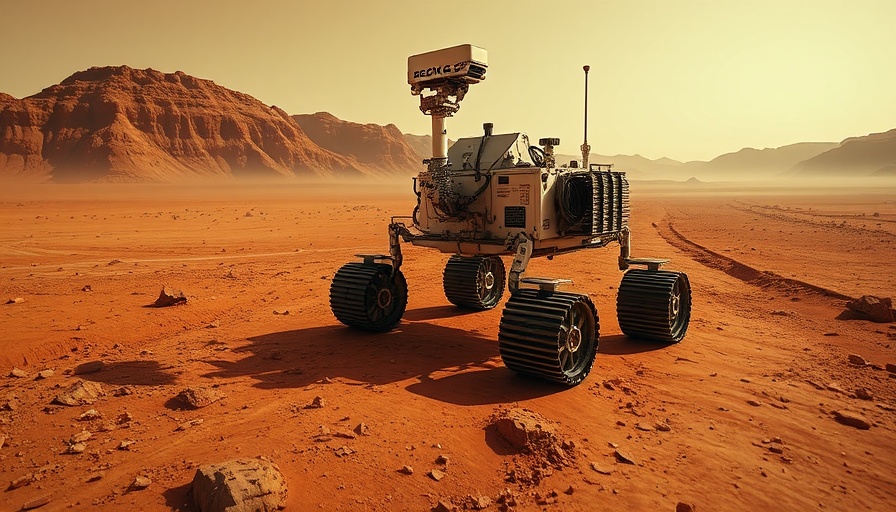
The Dawn of Martian Exploration: An Unprecedented Achievement
The age of Martian exploration has taken a monumental step forward with NASA's Perseverance rover, affectionately known as Percy. Launched in July 2020 and landed in February 2021 at the Jezero Crater, this $2.7 billion mission marks a turning point in our understanding of the Red Planet. For the first time, scientists are not just observing Mars but are actively collecting and returning samples back to Earth—an endeavor that could redefine astrobiology and planetary sciences.
Unlocking Mars’s Secrets: What We Hope to Discover
According to Professor Libby Hausrath from the University of Nevada, Las Vegas, these samples may reveal not just secrets about Mars but also invaluable information about our own planet. The Jezero Crater, chosen for its historical significance as a former lakebed, provides a prime opportunity to explore the possibility of past life on Mars.
With 28 samples already collected towards a target of 43, scientists are preparing to analyze materials that have been untouched for billions of years. This research could illuminate Mars's climatic history, offering comparative insights that explain the differences between Earth and its planetary neighbor.
The Exciting Future of Space Missions
As researchers await the mid-to-late 2030s when these samples are slated to return to Earth, the anticipation builds around what they might uncover. The excitement surrounding space exploration is crucial; it enchants young minds and draws future generations into the sciences. As Hausrath notes, the technologies developed during these missions could also have spinoff benefits on Earth, such as advances in scientific instrumentation and materials science.
Innovative Technologies Guiding Discovery
Moreover, the cutting-edge technologies governing the Perseverance mission, such as autonomous navigation systems and advanced imaging, are pivotal not only for space exploration but also for various industries back on Earth. The techniques developed in such explorations are increasingly applicable to robotics and automation, redefining efficiency standards across sectors.
Enhancing Our Understanding of Earth
One of the hidden benefits of these Mars missions lies in their relationship with Earth studies. The differences in Martian and terrestrial geology can enhance our understanding of Earth's own formation and evolution. This scholarly pursuit may reveal critical insights on water's role in shaping planetary bodies, influencing theories of both Earth’s geology and its potential for life.
The Path Ahead: An Opportunity for Growth and Learning
As we stand at this junction of possibility and excitement, it’s clear that the ramifications of Mars exploration extend far beyond its surface. As Mars continues to unveil its mysteries, education in STEM fields will likely receive a boost, encouraging exploration and innovation here on Earth. Encouraging a new era in planetary research, this mission sparks the imaginations of school children and seasoned scientists alike, proving that our quest for knowledge knows no boundaries.
 Add Row
Add Row  Add
Add 




Write A Comment